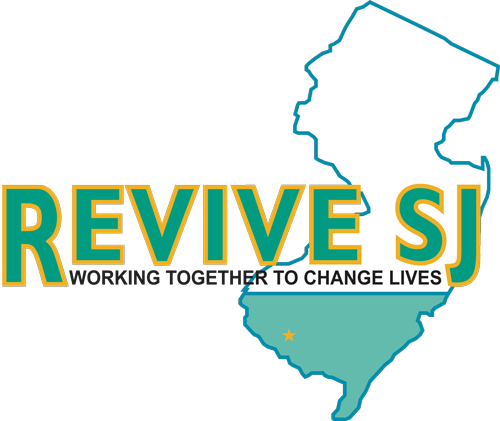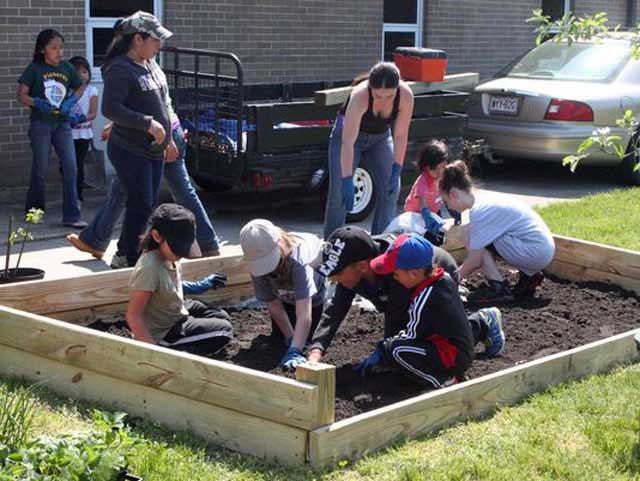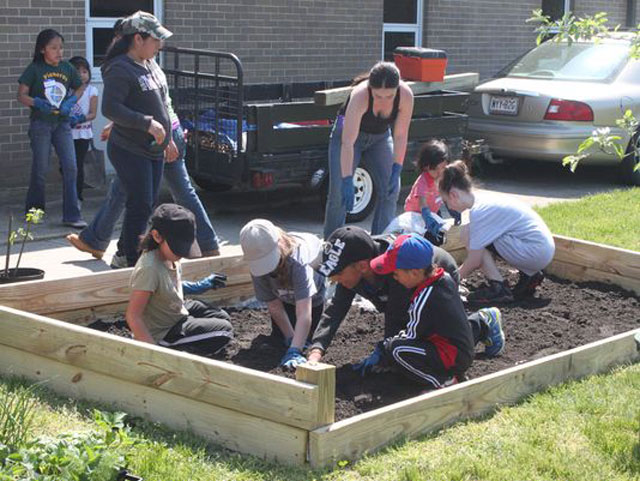BRIDGETON – Students, families and staff members from Indian Avenue School worked together to establish a sustainable fruit and vegetable garden at the school on May 17. The project was carried out through a partnership with the community organization Revive South Jersey — United for the Family/Unidos Para la Familia.
Mike Lubonavic from The Abundant Design Institute visited the school, through a grant obtained by Jonathan Cummings at Unidos Para La Familia, to teach participants about permaculture landscape design. This type of sustainable gardening uses patterns and relationships found in nature to plan energy-efficient high-yield gardens.
Two different garden areas were designed on the school grounds. One garden features annual vegetable and herb plantings, and the other has perennial plantings including berry bushes and fruit trees.
Teachers Maria Canino, Gina Collins, Mark Raybould and Fran Ferrara are heading up the project along with a devoted group of families who are learning and doing as they build the garden. Participants spent several hours in classes on the first weekend to learn about the concept of using the connection of natural elements including planting zones, slope, relative location, plant stacking with various heights of plants and yield times, cover cropping, natural pest control and composting. All of the instruction was presented in English and Spanish. A video was created to document the process.
Teachers, parents and students worked together to create three raised beds and two long swales, a unique feature of this type of agriculture landscaping. Swales are elongated mounds with water gathering troughs alongside them that follow the contour of the earth. Lowe’s provided, at cost, many of the materials used in the construction of the gardens.
Everyone from the school and surrounding community is invited to take part in caring for and nurturing the new community garden and to share in its yield. Perennials, including apple and pear trees as well as blueberry, blackberry, raspberry and goji berry bushes, were planted in the swales. Kiwi vines were planted to grow along an arbor that was built on the site, and a wide variety of herbs were set in several locations. Annuals, such as tomatoes, squash and peppers, have been planted in the raised beds.
The school encourages teachers to take their classes to tour the gardens and educate students on how to care for each of the planting areas. As the garden continues to develop, signage will be added and tours will be conducted so that everyone in the school community may learn more about sustainable permaculture landscape design.



Recent Comments